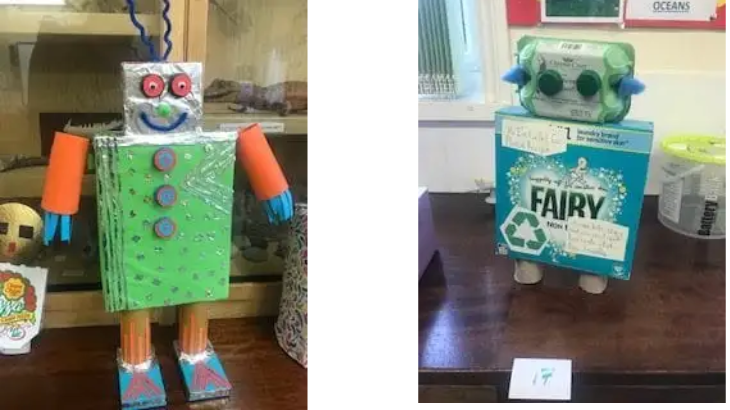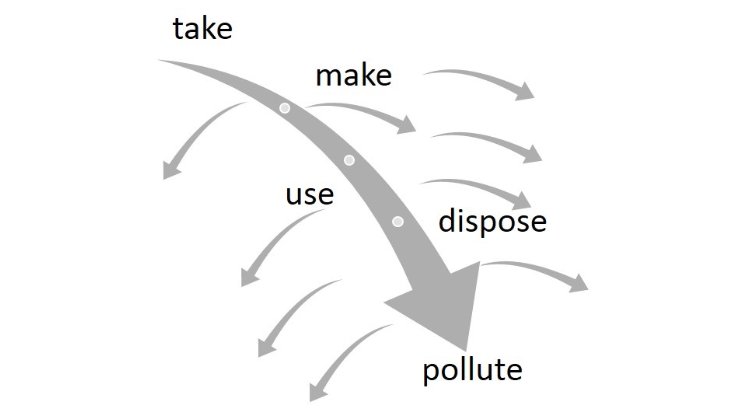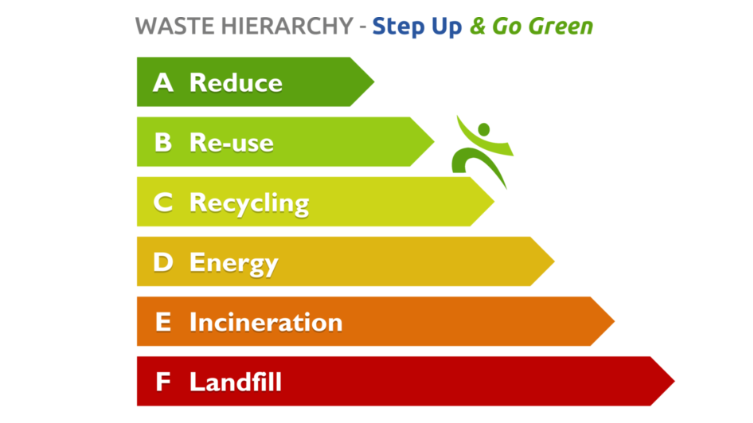Encore Environment - working hard to reduce waste and create social value

Take, make, use, dispose, pollute. These five words represent the traditional linear industrial system. It starts with extracting Earth’s minerals, metals, biomass and fossil fuels; these are then manufactured into products which are sold to consumers who - for the most part - will use them and then chuck them away. To borrow from Kate Raworth’s ‘Doughnut Economics’ – ‘like an industrial caterpillar, ingesting food at one end, chewing it through, and excreting the waste out of the other end.’

Industrial activity depletes nature’s resources at the start of the process and then dumps carbon dioxide (and equivalents) into the atmosphere, offloads effluent (agricultural run-off and sewage) into lakes and oceans, and disposes of consumer products into landfill at the end of the process.
What breaks my heart about this is how hard nature itself tries to deal with these by-products of industrial activity through its natural sinks – its oceans, soils and forests. The world’s forests absorb 2.6bn tonnes of carbon dioxide every year yet an area the size of a football pitch is destroyed every second. The Earth’s soil absorbs roughly a quarter of all human emissions each year, with a large portion of this stored in peatland or permafrost but it is under threat from increasing global demand for food production, chemical pollution and climate change. The ocean has sucked up about a quarter of the carbon dioxide released into the atmosphere since humans began burning fossil fuels for energy during the Industrial Revolution. But plastic pollution in our ocean means plankton are eating micro plastics, impacting the rate at which they are trapping carbon.
As a result of this depressing situation, the industry of responsible waste management is growing in importance.
The waste management hierarchy (or Lansink’s Ladder, named after a Dutch politician, Ad Lansink, who conceived the simple idea in 1979) indicates an order of preference for action to reduce and manage waste from most favourable to least favourable actions.

The original ‘ladder’ had 5 rungs: disposal, recovery, recycling, reuse and prevention. Lansink submitted his motion to the Dutch parliament, and it became a piece of formal legislation that has been a critical tool in shaping waste policy in the Netherlands ever since.
The waste management and recycling industries of today have adapted and tweaked the original ‘ladder’ to better reflect the technologies developed since the 1970s.
Encore Environment, based in Sywell, Northamptonshire, oversees the waste management needs of major construction projects across the country. They base their operations on Lansink’s waste management hierarchy, focusing on a reduce, reuse, and recycle approach, as well as getting involved early in a project in order to identify the best recycling solutions and identifying circular economy opportunities.
Approximately 59% of the total waste generated in the UK and 15% of total UK carbon emissions come from the construction industry and Encore Environment is working hard with its clients to reduce the waste these projects generate and decrease the carbon emitted. One of the innovative ways they do this is to connect surplus waste materials from construction refit and refurbishments projects with organisations in need who can reuse them. This stops reusable items going through traditional routes of disposal, reducing waste, reducing carbon, and creating social value. To use a well-known phrase ‘one man’s trash is another man’s treasure’; they have compiled a unique database made up of social enterprises, charities, hospices and schools in need of items and working with the construction company, ‘divert’ anything that they can to the people who need it. Encore Environment has named this ‘Project Divert’ and it has won a number of industry awards in recognition of the positive social impact this creates. The list of local charities and organisations that have benefitted from Project Divert is long; but here are a few: The Hope Centre, Overstone Scout Activity Centre, Sywell School, Home Start Kettering, Library Plus, Headway Northampton, Friends and Families MK, eve Northampton.
Another initiative from Encore Environment is Waste Wise Kids, a non-profit founded in August 2019. They work with local primary schools by supporting teachers in educating young children about waste, recycling and sustainability. They aim to give children the knowledge and understanding needed to actively reduce the amount of waste going to landfill. Their catchy logo is ‘stop, think and act’ and their presentations to schools are fun and informative. The schools receive resource boxes which include a presentation with teachers' notes, sustainable handouts, rewards charts and a ‘Rubbish Robot’ competition. The pupils and teachers work together to action sustainability initiatives within the school and learn lifelong skills that actively reduce waste going into landfill. Waste Wise Kids regularly run online competitions and promote crafting and repurposing ideas for families to do together. They bring their knowledge home and show their family and friends practical ways to manage household waste. Rachel Rowley, CEO and co-Founder of Encore Environment, hopes that through Waste Wise Kids, ‘children build life-long skills that will have a positive impact on the environment’s future.’

